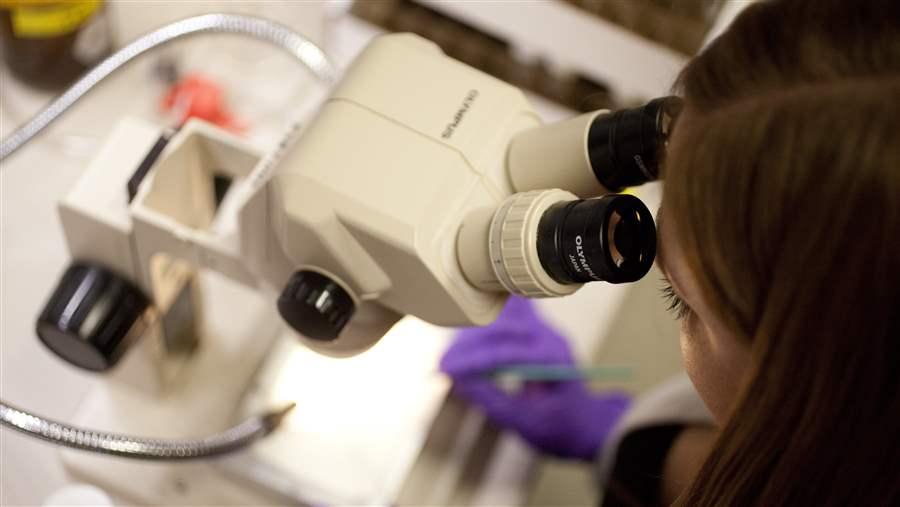These explorations have provided a springboard for medical advances including vaccines for measles and polio, insulin for diabetes, antibiotics for infections, medications for high blood pressure, and new strategies to treat and prevent cancer.
Pew has a decades-long commitment to support groundbreaking research by promising early-career biomedical scientists in the United States and Latin America. Our multiyear grants encourage informed risk-taking and collaboration among researchers.

This year, more than 2 million Americans will hear the words "you have cancer." That's 5,500 people each day—about one every 15 seconds. And as upsetting as that phrase might be, even more distressing is the word that often comes next: chemotherapy.
Trend Magazine

Pew’s biomedical programs support early-career investigators pursuing bold research with the potential to transform human health. Over four decades, three programs have fostered a global network of more than 1,000 pioneering scientists who innovate, mentor, and inspire. Hear from the people—and research—that make up Pew’s biomedical community.

Collaboration powers scientific discovery. Now 14 accomplished researchers are teaming up to lead such a charge as The Pew Charitable Trusts’ 2025 Innovation Fund investigators. The new class, announced Dec. 9, brings together pairs of leading scientists whose studies span immunology, cancer biology, biophysics, and more. Through their interdisciplinary partnerships, these investigators will explore creative research projects at the forefront of health and medicine.

Human immune systems are intricate disease-fighting networks that begin forming in utero—in the womb before birth—to keep us healthy. Research shows that a mother’s environment and exposures during pregnancy can significantly affect how an infant’s immune system develops.

It’s been 40 years since the Pew Scholars Program in the Biomedical Sciences was founded in 1985. In that time, the program, the first in the organization’s history to carry the Pew name, has supported more than 800 outstanding young researchers, many of whom have gone on to receive major scientific awards, including six Nobel Prizes.
Trust Magazine










